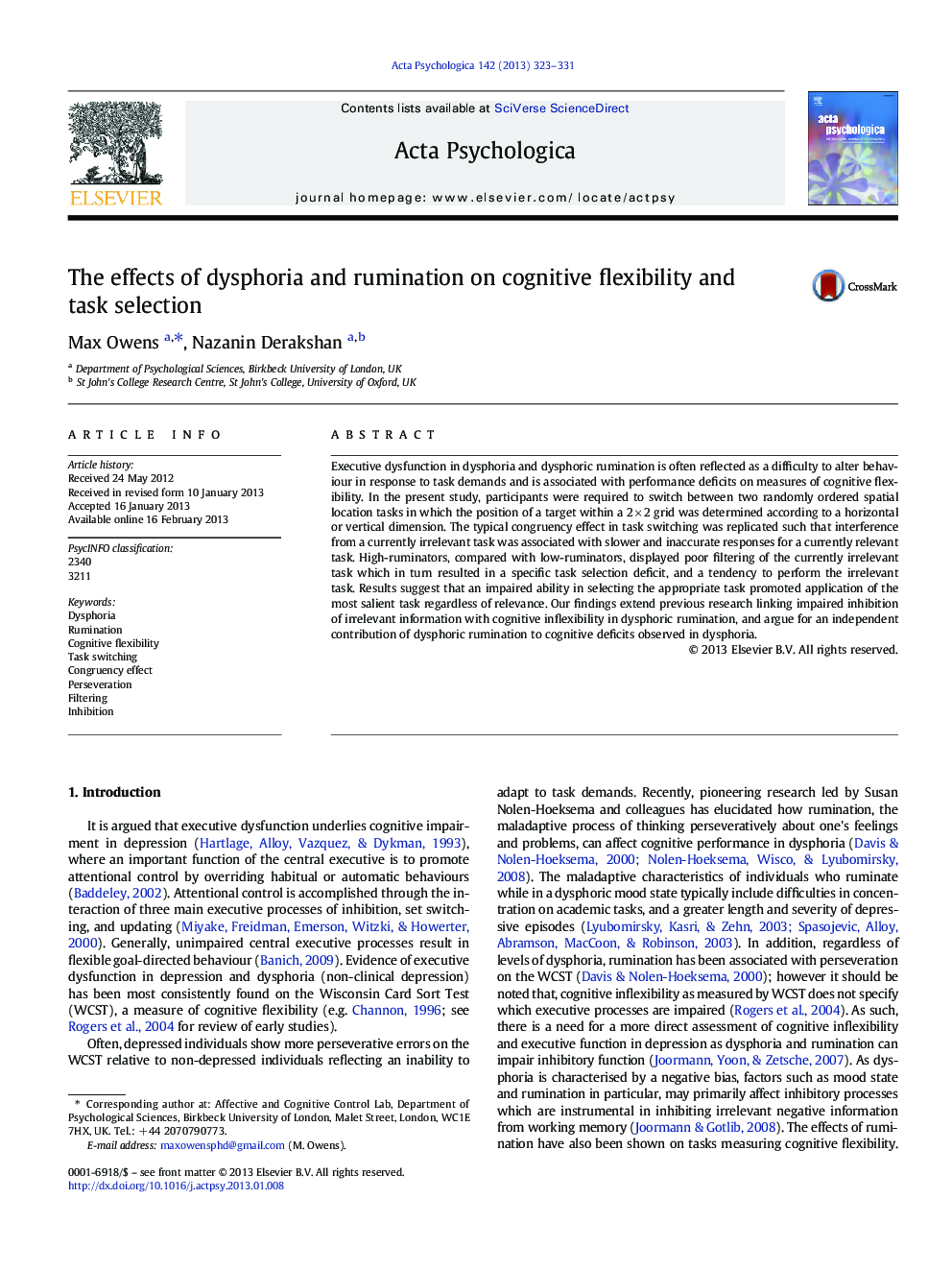| کد مقاله | کد نشریه | سال انتشار | مقاله انگلیسی | نسخه تمام متن |
|---|---|---|---|---|
| 919815 | 920242 | 2013 | 9 صفحه PDF | دانلود رایگان |

Executive dysfunction in dysphoria and dysphoric rumination is often reflected as a difficulty to alter behaviour in response to task demands and is associated with performance deficits on measures of cognitive flexibility. In the present study, participants were required to switch between two randomly ordered spatial location tasks in which the position of a target within a 2 × 2 grid was determined according to a horizontal or vertical dimension. The typical congruency effect in task switching was replicated such that interference from a currently irrelevant task was associated with slower and inaccurate responses for a currently relevant task. High-ruminators, compared with low-ruminators, displayed poor filtering of the currently irrelevant task which in turn resulted in a specific task selection deficit, and a tendency to perform the irrelevant task. Results suggest that an impaired ability in selecting the appropriate task promoted application of the most salient task regardless of relevance. Our findings extend previous research linking impaired inhibition of irrelevant information with cognitive inflexibility in dysphoric rumination, and argue for an independent contribution of dysphoric rumination to cognitive deficits observed in dysphoria.
► This study examined task switching performance in dysphoria and rumination.
► Inhibition mediates accurate task selection and speed of task rule implementation.
► Rumination alone was associated with poor task switching performance.
► Impaired inhibition in rumination specifically disrupts task selection.
Journal: Acta Psychologica - Volume 142, Issue 3, March 2013, Pages 323–331